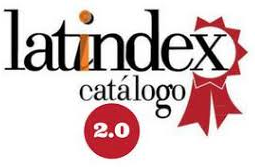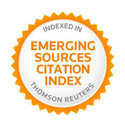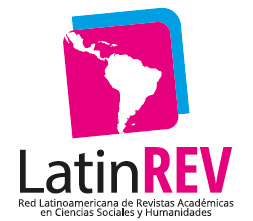Esports in Argentina
Incipient industrialization — or zeitgeist?
Abstract
Electronic sports (or esports) are a media-cultural phenomenon. And their emergence — at both the global and (in particular) local levels — allows us to examine the industrialization, mediatization, and intermediation of new products of cultural consumption. From this point of view, and via a qualitative methodology, we draw parallels between this and other phenomena, especially YouTubers and influencers, who precede esports almost as family relatives. Our analysis sheds light on certain key aspects of this process, including corporate and entrepreneurial culture, the centrality of structures, the idea of order and hierarchy, and the prevalence of leadership models that move away from the charismatic and towards the legal. In looking at these issues, we see the industrialization of esports as possible evidence for (or an invitation to reflect on) the return of a modern (rather than postmodern) cultural industry — and perhaps even the rise of a new zeitgeist.
Downloads
References
Abad, J. E. (2015). Deportes electrónicos: a un clic de distancia. XI Congreso Argentino y VI Latinoamericano de Educación Física y Ciencias. Ensenada, Buenos Aires, Argentina, 2015. http://hdl.handle.net/10915/56683.
Asencio, A. M. (2018). Por qué las marcas deben apostar por eSports en España. Ipmark: Información de publicidad y marketing, (844), 5.
Bayliss, H. A. (2016). Not Just a Game: The Employment Status and Collective Bargaining Rights of Professional ESports Players. Washington and Lee Journal of Civil Rights and Social Justice, 22(2), 359-409.
Benavides, E. A. S. (2016). Motivaciones en mujeres jóvenes latinoamericanas para iniciar y permanecer en comunidades de videojuegos online competitivos. Caso de estudio: League of Legends. Working Papers. Maestría en Gerencia Estratégica de Mercadeo, 1(1).
Bustamante, S. y Mauricio, W. (2017). Análisis del comportamiento del consumidor de e-sport y streaming, caso aplicado a Riot Games Latinoamérica sur. https://repositorio.usm.cl/handle/11673/24431.
Chakraborty, S., Thompson, J. C. y Yehoue, E. B. (2016). The culture of entrepreneurship. Journal of Economic Theory, 163, 288-317.
Charmatz, K. (1996). The Search for Meaning—Grounded Theory. En Van Langenhove, L., Harré, R. y Smith, J. A., Rethinking Methods in Psychology (pp. 27-49). SAGE Publications.
Coates, D. y Parshakov, P. (2016). Team vs. Individual Tournaments: Evidence from Prize Structure in eSports. Higher School of Economics Research Paper No. WP BRP 138/EC/2016.
Dimock, M. (17 de enero de 2019). Defining generations: Where Millennials end and Generation Z begins. Pew Research Center. https://www.pewresearch.org/fact-tank/2019/01/17/where-millennials-end-and-generation-z-begins/.
Dobrev, S. D. y Barnett, W. P. (2005). Organizational Roles and Transition to Entrepreneurship. Academy of Management Journal, 48(3), 433-449.
Egliston, B. (2015). Playing Across Media: Exploring Transtextuality in Competitive Games and eSports. En Proceedings of DiGRA 2015: Diversity of play: Games – Cultures – Identities.
Freeman, G. y Wohn, D. Y. (2017). eSports As An Emerging Research Context at CHI: Diverse Perspectives on Definitions. En CHI EA ’17: Proceedings of the 2017 CHI Conference Extended Abstracts on Human Factors in Computing Systems (pp. 1601-1608). ACM.
Gaidhani, S., Arora, D. L. y Sharma, B. K. (2019). Understanding the attitude of Generation Z towards workplace. International Journal of Management, Technology And Engineering, IX(I), 2804-2812.
Goffman, E. (1959). The presentation of self in everyday life. Doubleday.
González García, E. y Talavera López, J. C. (30 de julio de 2016). E-SPorts como modalidad de deporte. XII Congreso Español de Sociología. Gijón, España. http://www.fes-sociologia.com/files/congress/12/papers/3984.pdf.
Gotarra Navarro, R. (24 de octubre de 2017). El patrocinio en los eSports. http://repositori.upf.edu/handle/10230/33078.
Guasch, F. C. y Arévalo, E. R. de L. (2017). eSports y Derecho: es momento de ir clarificando las cosas. Revista Aranzadi de derecho de deporte y entretenimiento, (56), 177-211.
Hamari, J. y Sjöblom, M. (2017). What is eSports and why do people watch it? Internet Research, 27(2), 211-232. https://doi.org/10.1108/IntR-04-2016-0085.
Hardenstein, T. S. (2017). Skins in the Game: Counter-Strike, Esports, and the Shady World of Online Gambling. UNLV Gaming Law Journal, 7(2), 117-137.
Heaven, D. (2014). Rise and rise of esports. New Scientist, 223(2982), 17.
Heras, M. J. E., Guerrero, M. y Espinosa, R. S. C. (2018). Jugadores, escritores e influencers en redes sociales: procesos de profesionalización entre adolescentes. Revista Latina de Comunicación Social, (Extra 73), 214-236.
Hernández, P. y Jesús, P. (7 de junio de 2017). Los eGames como nuevo escaparate de la industria del videojuego. http://repositori.uji.es/xmlui/handle/10234/173784.
Hollist, K. E. (2015). Time to Be Grown-Ups about Video Gaming: The Rising eSports Industry and the Need for Regulation. Arizona Law Review, 57, 823.
Jenny, S. E., Manning, R. D., Keiper, M. C. y Olrich, T. W. (2017). Virtual(ly) Athletes: Where eSports Fit Within the Definition of “Sport”. Quest, 69(1), 1-18.
Jiménez, C. J. y Serrano, E. C. (2017). Los «eSports» ya no son un juego de niños. Actualidad Jurídica Aranzadi, (935), 8.
Keiper, M. C., Manning, R. D., Jenny, S., Olrich, T. y Croft, C. (2017). No reason to LoL at LoL: the addition of esports to intercollegiate athletic departments. Journal for the Study of Sports and Athletes in Education, 11(2), 143-160.
Kohan, A., Teubal, S., McCormick, A. y Resnizky, H. (14 de junio de 2016). Abordajes multimetodológicos sobre el ecosistema youtuber. 6to Congreso latinoamericano de investigadores de marketing y opinión. Buenos Aires, Argentina.
Kopp, J. I. (2017). Ejes para una investigación en deportes electrónicos. Revista Lúdicamente, 6(11), 18-34.
Kozinets, R. V. (marzo de 2010). Netnography: The marketer’s secret weapon. Whitepaper.
Lárez, B. E. M. (2012). Características sociológicas de videojugadores online y el e-sport: el caso de Call of duty. Pedagogía social: revista interuniversitaria, (19), 113-124.
Lee, J. Y., An, J. W. y Lee, S. W. (2014). Factors Affecting eSports Audience Satisfaction - The case of League of Legends. Journal of Korea Game Society, 14(3), 35-46.
Li, R. (2017). Good Luck Have Fun: The Rise of eSports. Skyhorse Publishing, Inc.
López, J. M. M. (2017). “e-sports”: ¡deportes? electrónicos. Los “e-sports”, una nueva modalidad deportiva. Revista Aranzadi de derecho de deporte y entretenimiento, (55), 205-240.
Martínez Juan, J. (2017). Un nuevo enfoque de los eSports. Mejorando la calidad de vida (Trabajo de fin de grado). Facultad de Ciencias de la Salud, Universidad de La Laguna. https://riull.ull.es/xmlui/bitstream/handle/915/9709/Un%20nuevo%20enfoque%20de%20los%20eSports.%20Mejorando%20la%20calidad%20de%20vida..pdf?sequence=1.
Melchor Valdés, A. (2017). eSports : la nueva era de la competición deportiva. (Trabajo de fin de grado). Facultad de Comunicación, Universidad de Sevilla. https://idus.us.es/xmlui/handle/11441/65271.
Montero, A. S. (2012). Los usos del ethos: abordajes discursivos, sociológicos y políticos. Rétor, 2(2), 223-242.
Olsen, A. H. (28 de septiembre de 2015). The Evolution of eSports: An Analysis of its origin and a look at its prospective future growth as enhanced by Information Technology Management tools. Coventry University
Pérez-Rubio, C., González, J. y Garcés de los Fayos, E. J. (2017). Personalidad y burnout en jugadores profesionales de e-sports. Cuadernos de Psicología del Deporte, 17(1), 41-50.
Ries, E. (2011). The Lean Startup: How Today’s Entrepreneurs Use Continuous Innovation to Create Radically Successful Businesses. Crown Publishing Group.
Román, J. S. (2017). ¿El nuevo fútbol?: el fenómeno de los esports. Interactiva: Revista de la comunicación y el marketing digital, (Extra 1), 58-63.
Romo Moreno, L. (2017). Revolución digital : el caso de los deportes electrónicos en los medios de comunicación deportivos. Universitat Autònoma de Barcelona. https://ddd.uab.cat/record/181678.
Roncero, M. A. y García, F. G. (2014). Deportes electrónicos: una aproximación a las posibilidades comunicativas de un mercado emergente. Questiones publicitarias, (19), 98-115. https://doi.org/10.5565/rev/qp.28.
Schaeperkoetter, C. C., Mays, J., Hyland, S. T., Wilkerson, Z., Oja, B., Krueger, K., Christian, R. y Bass, J. R. (2017). The “New” Student-Athlete: An Exploratory Examination of Scholarship eSports Players. Journal of Intercollegiate Sport, 10(1), 1-21.
Seo, Y. (2016). Professionalized consumption and identity transformations in the field of eSports. Journal of Business Research, 69(1), 264-272.
Seo, Y. y Jung, S. U. (2016). Beyond solitary play in computer games: The social practices of eSports. Journal of Consumer Culture, 16(3), 635-655.
Signes, A. T. (2017). El contrato de trabajo en los deportes electrónicos (eSports). Revista Aranzadi de derecho de deporte y entretenimiento, (56), 113-137.
Tomlinson, J. (2007). The Culture of Speed: The Coming of Immediacy (1a ed.). SAGE Publications Ltd.
Toril, J. U. y Valenciano, J. de P. (2011). Revisando el Emprendedurismo. Boletín económico de ICE, 3021, 53-62.
Trancoso Jiménez, J. (2016). E-Sports: evolución y tratamiento en los medios. El caso League of Legends (Trabajo de fin de grado). Facultad de Comunicación, Universidad de Sevilla. https://idus.us.es/xmlui/handle/11441/43425.
Trenta, M. (2017). Los deportes electrónicos como punto de encuentro entre los millennials y las marcas. En Herrero Gutiérrez, F. J. y Mateos Martín, C. (Coords.), Del verbo al bit (pp. 843-862). Sociedad Latina de Comunicación Social. ttps://dialnet.unirioja.es/servlet/articulo?codigo=6064317.
Vera, J. A. C. (2015). La dimensión social de los videojuegos ‘online’: de las comunidades de jugadores a los ‘e-sports’. Index.comunicación: Revista científica en el ámbito de la Comunicación Aplicada, 5(1), 39-51.
Vera, J. A. C. (2016). De jugadors a espectadors. La construcció de l’espectacle mediàtic en el context dels esports electrònics. Anàlisi: quaderns de comunicació i cultura, 0(55), 1-16.
Weber, M. (1982). La política como vocación. En Aricó, J. M. y Llorente, F. R. (Eds.), Escritos políticos II. Folios Ediciones.
Copyright (c) 2021 Adrián Enrique Kohan

This work is licensed under a Creative Commons Attribution-NonCommercial 4.0 International License.
The authors retain the copyright and guarantee the journal the right to be the first publication of the work. In case that a translation of the article already published in Austral Comunicación can be published in another journal, it is requested to record the original publication in the translated version.
The license used is CC BY-NC-SA, which allows sharing (copying and redistributing the material in any medium and format) and adapting (remixing, transforming and building on the material) under the following terms: attribution (acknowledge authorship) and non-commercial (the material cannot be used for commercial purposes). Update: February 1, 2022.
Austral Comunicación allows the author (s) to retain the publication rights without restrictions.











































